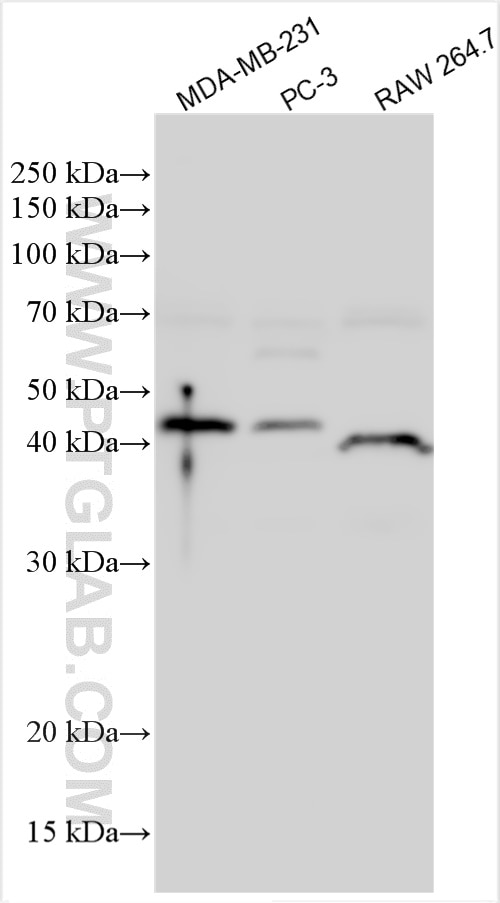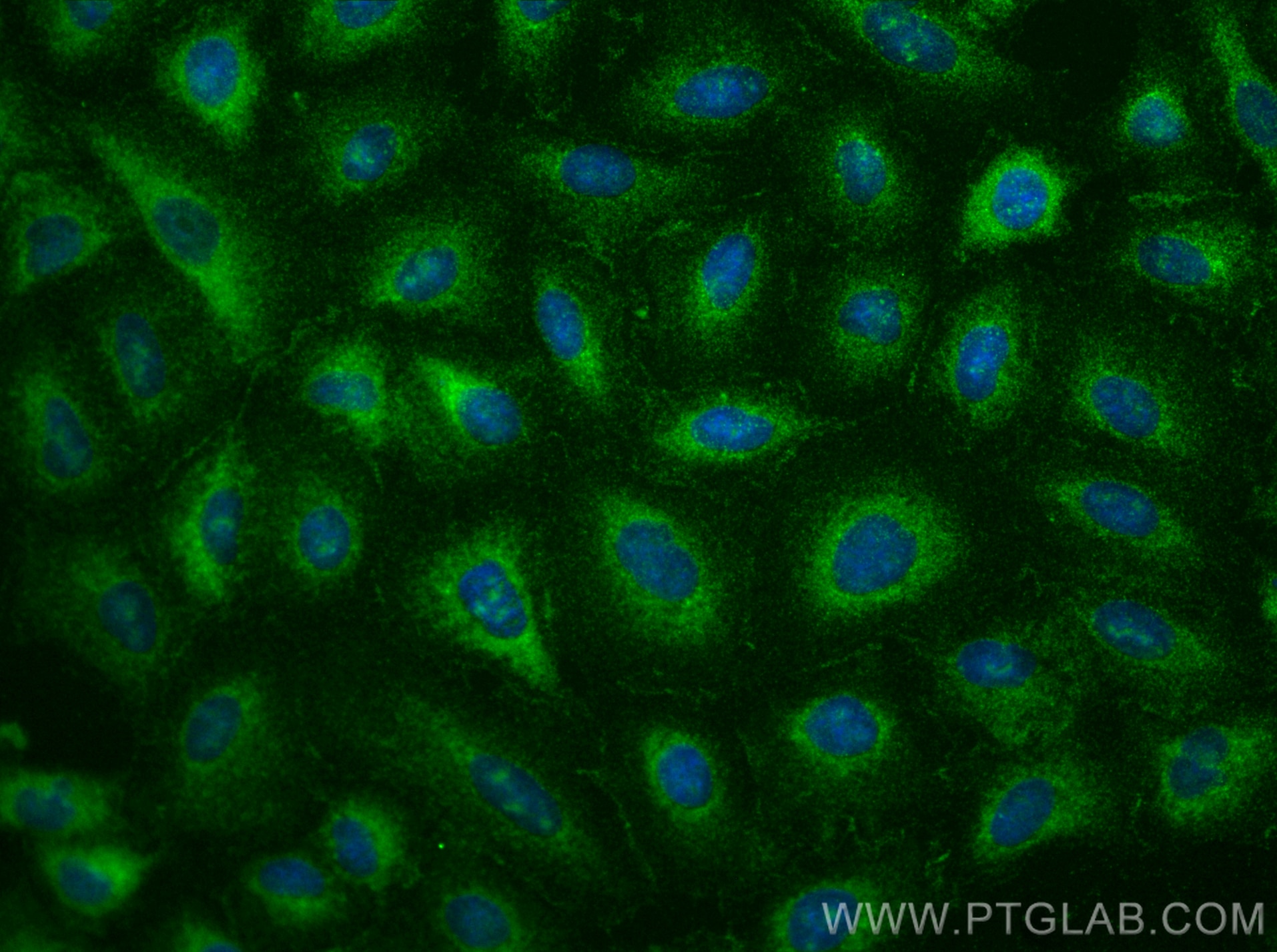Validation Data Gallery
Tested Applications
Recommended dilution
| Application | Dilution |
|---|---|
| It is recommended that this reagent should be titrated in each testing system to obtain optimal results. | |
Product Information
31231-1-PBS targets LPXN in WB, IF/ICC, Indirect ELISA applications and shows reactivity with human, mouse samples.
| Tested Reactivity | human, mouse |
| Host / Isotype | Rabbit / IgG |
| Class | Polyclonal |
| Type | Antibody |
| Immunogen |
CatNo: Ag34956 Product name: Recombinant human LPXN protein Source: e coli.-derived, PGEX-4T Tag: GST Domain: 5-132 aa of BC019035 Sequence: DALLEELERSTLQDSDEYSNPAPLPLDQHSRKETNLDETSEILSIQDNTSPLPAQLVYTTNIQELNVYSEAQEPKESPPPSKTSAAAQLDELMAHLTEMQAKVAVRADAGKKHLPDKQDHKASLDSML 相同性解析による交差性が予測される生物種 |
| Full Name | leupaxin |
| Calculated molecular weight | 43 kDa |
| Observed molecular weight | 40-50 kDa |
| GenBank accession number | BC019035 |
| Gene Symbol | LPXN |
| Gene ID (NCBI) | 9404 |
| Conjugate | Unconjugated |
| Form | |
| Form | Liquid |
| Purification Method | Antigen affinity Purification |
| UNIPROT ID | O60711 |
| Storage Buffer | PBS only{{ptg:BufferTemp}}7.3 |
| Storage Conditions | Store at -80°C. |
Background Information
LPXN, also known as Leupaxin, LDPL, belongs to the paxillin family. LPXN Contributes to the regulation of cell adhesion, spreading, and cell migration and acts as a negative regulator in integrin-mediated cell adhesion events (PMID: 20543562). LPXN has four leucine-rich LD-motifs in the N-terminus and four LIM domains in the C-terminus. It may function in cell type-specific signaling by associating with PYK2, a member of the focal adhesion kinase family (PMID: 9565592). Studies in breast cancer implicate LPXN is involved in the regulation of ER action as a co-factor (PMID: 25955236). LPXN is expressed in prostate cancer cells and its expression intensity is directly linked to PCa progression (PMID: 18451096).


